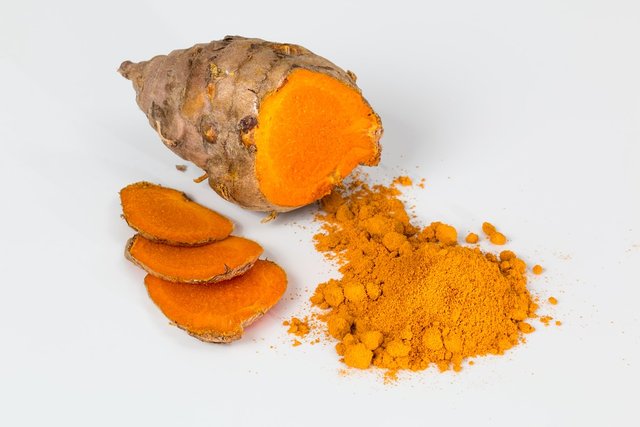
A recent study finds turmeric and curcumin to not only be a safe, effective treatment for lowering cholesterol but it also provides protection for the heart.
Although the lipid-lowering effects of either substance is currently not known. A team of researchers from The Second Affiliated Hospital of Chongqing Medical University conducted a meta-analysis of a number of studies to analyze this possible benefit.
The researchers started by first looking for randomized controlled trials (RCTs) in several online databases by entering keywords such as “turmeric,” “cholesterol,” “triglycerides,” and other similar phrases. They were able to identify a total of 1,566 studies.
They then narrowed the numbers down further to just seven relevant studies, after they were first screened and examined by two separate and non-biased investigators.
Of the seven studies, the researchers focused on specifically Type 2 diabetes mellitus participants, or metabolic syndrome, a collection of symptoms that can cause an increase in heart disease and diabetes risks.
Meta-analysis of these studies showed that both turmeric and curcumin had positive effects worth taking note of. For instance, the two substances were shown to impact the serum triglyceride and low-density lipoprotein cholesterol levels of patients already at risk of cardiovascular disease. Additionally, patients with metabolic syndrome were shown to benefit from reduced serum total cholesterol levels after the administration of turmeric and curcumin.
The researchers stated that they believed the results were a result of a number of molecular mechanisms. Curcumin was found to bind with and even activate peroxisome proliferator-activated receptor gamma. This specific nuclear receptor suppresses low-density lipoprotein cholesterol gene expression, which in turn can reduce concentrations of plasma low-density lipoprotein cholesterol. Another probable explanation was that curcumin was capable of interacting with peroxisome proliferator-activated receptor alpha, cholesteryl ester transfer protein, and lipoprotein lipase, resulting in abated triglyceride levels.
Although beneficial in several aspects, the researchers stated that turmeric and curcumin had no noticeable effects in many others. The serum total cholesterol levels of hyperglycemic patients remained the same, as did the serum high-density lipoprotein levels of patients at risk of cardiovascular disease. However, since the majority of these studies utilized unformulated curcumin, the researchers added that a different form of curcumin would be better for future clinical trials.
As is, curcumin has very poor bioavailability because the human body is unable to fully absorb it before expelling it.
“Subjects who received turmeric and curcumin experienced a natural cardioprotective effect, with lowering of serum [low-density lipoprotein cholesterol] and [triglyceride] levels, as compared to subjects who did not,” wrote the researchers in their study, published in Nutrition Journal. They added that the effects of turmeric and curcumin on total cholesterol is still inconclusive, although it can reduce the total cholesterol levels of those who have a higher likelihood of cardiovascular disease. All in all, more studies would be necessary to confirm this, preferably with a form of curcumin with enhanced bioavailability.
What else can turmeric do for the heart?
According to Healthline.com, curcumin can improve the function of the endothelium or blood vessel lining. Through this, curcumin can greatly minimize the chances of endothelial dysfunction, which is a factor and major driver behind cardiovascular disease. In fact, several studies have confirmed this beneficial effect, with one study even stating that curcumin is as effective as exercise in this respect.Moreover, curcumin has been shown to cut back on inflammation and oxidation, both of which can impact an individual’s chances of developing cardiovascular disease. The efficacy of curcumin is such that coronary artery bypass surgery patients who received a small dosage of curcumin over the course of their hospital stay were 65 percent less likely to suffer a heart attack.
Sources include:
If you liked the above blog post, then you are probably interested in superfoods, which Turmeric is one at the top of the list... and you will fall in love with Turmeric when you learn about all the amazing benefits!
Not only is Turmeric good for your heart, and your cholesterol did you know Turmeric can be used for anti-inflammatory, healthy skin, acne, wrinkles, hair growth, and much more.
Click above to download the Ebook: Learn the Top 10 Benefits of Turmeric and read this fantastic eBook on all the amazing Uses of Turmeric.
You will discover how to use Turmeric for Weight Loss, Skin Care, Pain Relief, and a ton of other amazing benefits.
Posted from my blog with SteemPress : https://sharehealthyinfo.com/losing-weight/benefits-of-turmeric-and-curcumin/

Hi! I am a robot. I just upvoted you! I found similar content that readers might be interested in:
https://www.naturalnews.com/2018-11-12-turmeric-and-curcumin-safe-effective-treatment-for-lowering-cholesterol.html
Downvoting a post can decrease pending rewards and make it less visible. Common reasons:
Submit